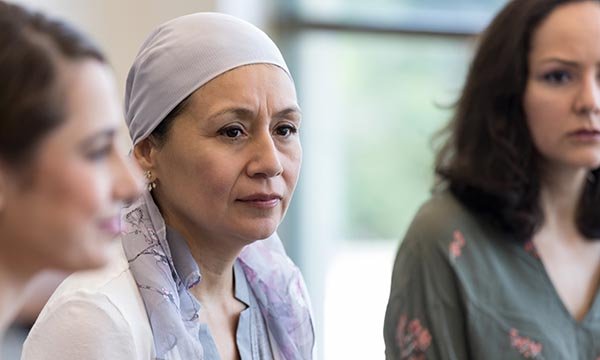Barry Quinn
How to manage being bullied as a nurse leader
Why you should read this article: • To enhance your understanding of how bullying undermines individual nurses and the nursing profession • To recognise that nurse leaders are not immune from being bullied, whether by peers or by people in more junior or more senior positions • To find practical advice on how to manage being bullied as a nurse leader Rationale and key points Bullying has existed in health and social care organisations for many years. Although researchers have examined the effects of bullying on nurses and nursing students, there has been too little focus on bullying behaviours inflicted directly or indirectly on nurse leaders and managers. This article provides concise and practical guidance for nurses in leadership or management roles on how to identify and manage bullying behaviours directed at themselves. • Overt or covert bullying in nursing can happen at every level of the organisation. • Bullying negatively affects practice, teamwork, staff morale and patient care. • Identifying bullying is the first step in addressing unacceptable behaviours. • Admitting that you may be being bullied and seeking support to manage bullying is a hallmark of an effective nurse leader. Reflective activity ‘How to’ articles can help to update your practice and ensure it remains evidence-based. Apply this article to your practice. Reflect on and write a short account of: • How this article might improve your practice when managing being bullied as a nurse leader. • How you could use this information to educate your peers about managing being bullied as a nurse leader.
End of life care: how nurses can use a compassionate approach
Why you should read this article: • To recognise that being open to the reality of death as part of life can assist nurses in being more attuned to the needs of those in their care who are dying • To appreciate the importance of considering each individual’s symptoms and concerns through the lens of compassion when providing end of life care • To understand that attending to one’s own needs is a core component of compassionate care and may strengthen nurses’ ability to care for others The reality of death and dying is a central facet of life, often surrounded by feelings of sadness, fear and uncertainty. Nurses have an essential role in caring for people who are approaching the end of life and their families, while being mindful of the current demands and challenges in health and social care services. In this article, the author suggests that being more open to the reality of death as part of life may assist nurses in being more attuned to the personal needs of those who are dying. The article emphasises the importance of considering each person’s symptoms and concerns through the lens of compassion to address pain, fear and distress. While the focus is on caring for people who are approaching the end of life, the author asserts that there is much that nurses can learn from those they care for about the beauty of life and the naturalness of death.
Bad behaviour exists in nursing, but supportive colleagues are there too
Bullying attitudes may arise when nurses lose compassion, and could drive others to leave
Too many people are still being diagnosed with cancer too late
Every nurse can make a difference and every person with cancer’s voice should be heard
Communication and information needs of older people with cancer
Systematic review emphasises the benefit of patients having a named contact within the care team
RCN award winner demonstrates compassionate leadership in action
Julie Roye and her team improved uptake of smear tests in a diverse patient group
Co-producing transgender awareness training for healthcare students and professionals
Learn about co-production, content and delivery of a transgender awareness training session
Why I must raise my concerns about your gender diversity in nursing article
Ella Guerin, a non-binary mental health nurse, has concerns about content and language used
How should nurses assess and manage pain in a person with cancer?
Exploring the personal meaning of pain for patients can help with support and treatment
Exploring relationships in the search for meaning in people living with cancer: part 2
Second of two articles describing the personal story of cancer
Exploring important relationships in the search for meaning in people living with...
First of two articles on the personal experience of cancer, this explores relationships
Role of the body in cancer, sense-making and the search for meaning
Nursing care requires nurses to work intimately and closely with the bodies of others











